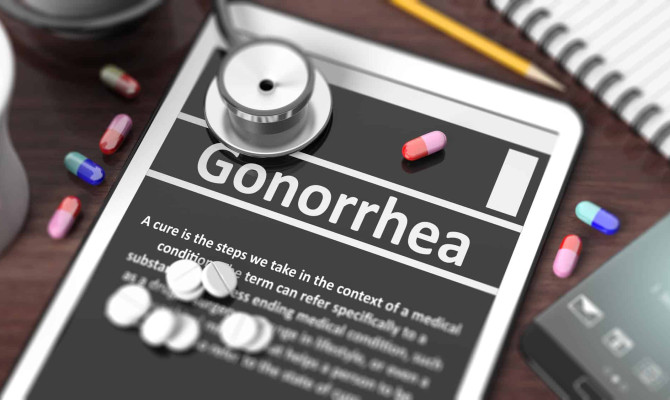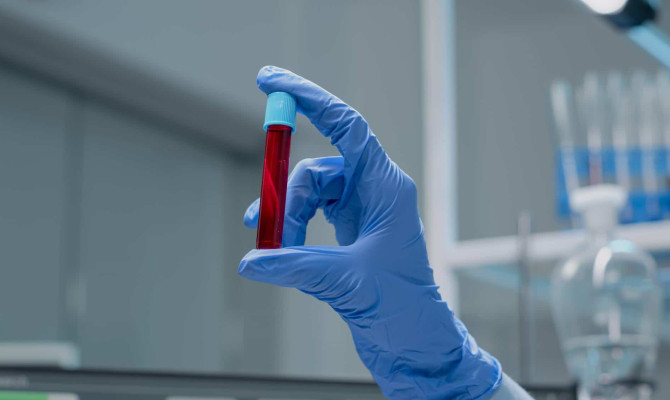ICU vs CCU: How Is It Different From Each Other?

- Critical Care
- 18 Oct 2023
Introduction
How is CCU different from ICU?
Patients who are in life-threatening situations are treated in the intensive care unit (ICU) and coronary care unit (CCU) in critical care medicine. Despite serving different medical needs, they carry out some of the same tasks.

A hospital’s Coronary Care Unit (CCU) diagnoses and treats serious heart problems, most notably coronary artery disease. Common reasons for CCU hospitalizations include chest pain, heart attacks, severe heart failure, and irregular heartbeats. The CCU’s state-of-the-art cardiac monitoring equipment keeps track of electrocardiograms (ECGs), blood pressure, and other vital signs. Staff members of the CCU include cardiologists, cardiac nurses, and other heart specialists. Relaxing patients, treating cardiac conditions, and preventing heart damage are the goals of CCU care.
Where CCU and ICU concentrate is the main distinction. The ICU handles a wider range of emergency medical conditions than the CCU, which focuses on heart attacks. While the CCU primarily cares for cardiac patients, the ICU handles a wide range of critical diseases. 1 Introduction| Researched based study from Anatomy Notes
CCU
What happens in Coronary Care Unit?
- Patients with severe or urgent heart issues are treated in a specific hospital ward called a cardiac care unit (CCU). For patients who have undergone cardiac surgery, the CCU functions as a recovery centre.
- When continuous monitoring is necessary, cardiac care units are especially staffed and prepared to handle challenges that are specific to heart patients.
- Patients are cared for by nurses, technicians, and doctors who have received specialized training to treat persons with critical cardiac diseases. This facility has a much larger staff-to-patient ratio than a regular hospital unit.
- Every patient admitted to the CCU is placed on a cardiac monitor, which records and analyses each heartbeat and sounds an alarm to alert staff members if risky arrhythmias emerge. 2 Coronary Care Unit | Researched based study from The National Health Service
ICU vs CCU
Is ICU Higher than Critical Care?
- Intensive care units and critical care units are the same.
- They both concentrate on monitoring and providing care for patients who need round-the-clock assistance.
- In hospitals with ICUs, a separate cardiac care unit may or may not exist.
- A cardiac care unit focuses on treating patients with heart issues, as opposed to an intensive care unit (ICU), which cares for patients with a variety of life-threatening illnesses.
- Critical care, cardiac care, and intensive care units all use equivalent monitoring and care equipment in their various units as they treat patients with critical conditions. 2 ICU vs CCU | Researched based study from The National Health Service , 3 ICU vs CCU | Researched based study from National Institutes of Health
ICU Complications
Intensive Care Support Complications
- Surgery patients’ admission to the intensive care unit (ICU) may be planned or elective, or it may happen as an emergency admission as a result of a surgical or anesthetic complication or due to the development of the underlying ailment.
- Numerous ICU support-related consequences are a result of a patient’s acute pathology and previous comorbidities, as well as the kind and complexity of the surgery they undergo.
- Additionally, having significant comorbidities and performing complicated surgery are linked to an increased risk of complications, which frequently need or extend an ICU stay.
In ICU, complications are widespread and vary because of the wide diversity of surgical patients, ailments, therapies, and procedures used there.
A few are listed below which include:
- Neurologic Complications
- Respiratory/Airway Complications
- Cardiovascular Complications
- Renal Complications Hepatic Complications
- Gastrointestinal Complications
- Endocrine/Metabolic Complications
Neurologic Complications:
- The most frequent neurologic consequence in ICU is encephalopathy (brain disease that alters brain function/structure), which typically has a complex cause.
- The disease that causes neurologic consequences most frequently is sepsis.
- Another common issue with critical illness and its treatment is severe weakness, often known as “critical illness polymyoneuropathy”.
- Higher mortality, longer hospital stays, and higher disability are all related to neurologic problems.
Respiratory/Airway Complications:
When a patient’s trachea (windpipe) needs to be intubated/extubated, pleural spaces need to be drained, or a tracheostomy (surgically created pipe in windpipe) needs to be created in an intensive care unit patient, few complications occur, referred as airway complications which includes the following
- Hypertension / hypotension
- Upper airway trauma
- Arrhythmia (irregular heartbeats)
- Bronchospasm (tightening of the muscles that line the airways in your lungs).
Cardiovascular Complications:
The following are a few of the ICU issues related to medications and treatments that either compromise cardiac function or cause arrhythmias (irregular heartbeats)
- Acute myocardial infarction (heart attack)
- Cardiac failure
- Shock
- Pericarditis (inflammation of the lining of the heart)
- Arrhythmias (irregular heartbeat).
Renal Complications:
When necessary, renal replacement therapies (most frequently hemofiltration and/or hemodialysis) are administered in the intensive care unit, although they have some unique risks such as
- Sepsis
- Hypoxia (low levels of oxygen in body tissues).
Hepatic Complications:
In the course of the intensive care unit’s management of various systemic illnesses, hepatic problems usually arise as a result of sepsis, shock, and cardiac low-flow conditions. Although hepatic issues are often prehepatic, intrahepatic (hepatocellular), or post hepatic (cholestatic), mixed etiologies are common in practice especially in seriously ill ICU patients.
Hepatic dysfunction normally improves if the underlying issue (such as sepsis or shock) is resolved, unless the liver is the main problem.
Some complications are listed below which includes:
- Hypoxic/ischemic hepatitis (acute liver injury that occurs due to insufficient blood flow to liver)
- Total parenteral nutrition (TPN) – related hepatobiliary complications ranging from mildly elevated liver enzyme values to steatosis (fatty liver disease), steatohepatitis (advanced form of non-alcoholic fatty liver disease), cholestasis (type of liver disease), fibrosis (thickening/scarring of the tissue), and cirrhosis (severe scarring of the liver).
- Drug-induced hepatic dysfunction/hepatitis (inflammation of liver), occasionally leading to fulminant hepatic failure (condition marked by liver cell injury and death)
- Cholecystitis (inflammation of the gallbladder)
- Hepatic abscess (liver abscess)
- Hepatic synthetic dysfunction (acute liver failure) from nutritional and perfusion inadequacy.
Gastrointestinal Complications:
Some of the common gastrointestinal complications include:
- Esophageal reflux (common in comatose patients)
- Stomach ulcer
- Colitis (inflammation of colon).
Endocrine/Metabolic Complications:
The strains of critical illness and surgery frequently affect the body’s regulatory functions. As a result, metabolic and endocrine disorders are frequently present at the time of admission and while patients are admitted to the ICU. The following are some of the more typical abnormalities:
- Hyper- or hypoglycemia as a result of altered glucose metabolism
- Adrenal underactivity
- Acid-base imbalances. 4 ICU Complications | Researched based study from National Institutes of Health , 5 ICU Complications | Researched based study from National Institutes of Health
FAQs
Frequently Asked Questions About ICU & CCU
Q. What does a Coronary care unit do?
- A hospital ward specifically created to care for patients with severe or urgent heart issues is known as a cardiac care unit (CCU).
- Patients who have had heart surgery are often kept in the CCU for recovery.
- These wards are outfitted to offer specific treatment for heart diseases, and its staff includes nurses with cardiac care training.
- Patients are cared for by nurses, technicians, and doctors who have received specialized training to treat persons with critical cardiac diseases.
- This facility has a much larger staff-to-patient ratio than a regular hospital unit.
- Every patient admitted to the CCU is connected to a cardiac monitor, which tracks and analyses each heartbeat and will sound an alarm to alert staff members if risky arrhythmias emerge. 6 FAQs| Researched based study from ScienceDirect
Q. What are the 3 levels of critical care?
In a report titled Comprehensive Critical Care, published in 2001 by the UK Department of Health, the following levels of care are outlined:
- Level 1: Ward-based care for patients who do not need organ support but may still need an IV or oxygen via a face mask.
- Level 2: High dependence unit (HDU) – Patients may require invasive blood pressure monitoring or single organ support, such as renal hemofiltration or inotropes, but not mechanical ventilation. One nurse is assigned to every two patients.
- Level 3: Intensive care – Patients may require mechanical ventilation alone or two or more organ supports staffed with one nurse for every patient, and a doctor typically on duty around-the-clock in the unit. 7 FAQs | Researched based study from The National Health Service
Takeaway
ICU & CCU for a Range of Critical Conditions
- The greatest level of care is given to patients in intensive care units (ICUs) and coronary care units (CCUs) who have a range of critical conditions. Medical personnel who have completed considerable training to deliver critical care to the patient work in these facilities.
- CCU is a critical care facility that provides care to patients recovering from heart surgery or those with serious heart diseases. The medical staff in this unit are well trained and highly experienced to provide cardiac care to patients.
- An intensivist is a doctor who focuses on treating critically sick patients. They offer treatment for patients in the ICU on a weekly basis and daily review each patient’s health. 1 Takeaway| Researched based study from Anatomy Notes , 2 Takeaway| Researched based study from The National Health Service
Any feedback on this article?
 This Articles content was accurate
This Articles content was accurate Very Informative Article
Very Informative Article I have a question or a comment
I have a question or a comment
 This article contains inaccurate content
This article contains inaccurate content This article was not helpful
This article was not helpful I have a question or a comment
I have a question or a comment
We appreciate your helpful feedback!
Checkout our social pages
References
-
Anatomy Notes
Introduction | Takeaway
-
The National Health Service
Coronary Care Unit | ICU or CCU | Takeaway
-
National Institutes of Health
ICU vs CCU
-
National Institutes of Health
ICU Complications
-
National Institutes of Health
ICU Complications
-
ScienceDirect
What does a Coronary care unit do?
-
The National Health Service
FAQs






































